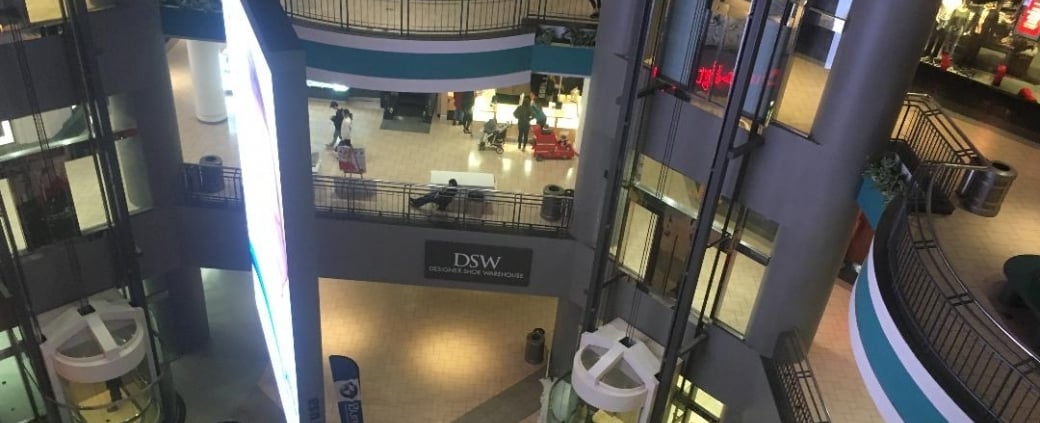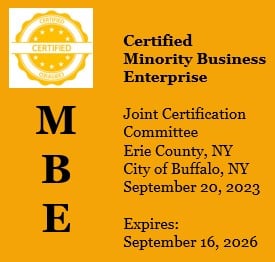Gunshots in a Syracuse Mall, a Phone Call and Darkness in a Distant Car
By Sean Kirst
Published December 13, 2019|Updated December 14, 2019
You are on a drive with your oldest son on the night after Thanksgiving, surrounded by darkness on a country highway. You are on your way back, by tradition and ritual, from where you ate dinner and picked up a fish fry for your wife. Your son is behind the wheel and you are talking about everything – his career plans, the sprawling landscape, New York City in December – when your phone starts to buzz and the screen tells you, “UNKNOWN NUMBER.”
The decision is whether to pick it up. You have grown weary of your own submission to the phone, the endless checks of email, Facebook and Twitter. You look at the flashing message, and think about whether to let it go.
You apologize to your son, lift the phone and hear a familiar voice.
It is your daughter, your oldest, closing in on 30, number blocked because she is using the phone at her job. Right away, by instinct, you know: Something is wrong.
The two of you are close, a relationship grounded on humor since she toddled. She goes through life like a tailback goes off tackle, an explosion of astonished reactions and observations, and her phone calls typically begin with a medley of wisecracks before getting down to business.
This one is different. Her voice, in the way she calls you, “Dad,” says everything. One word, and you brace for whatever might be coming. Just like that, and it is like the pressure changes in the dark car, light pouring against your knees from the dashboard and radio.
Your daughter is an assistant manager at a busy store at Destiny USA, a Syracuse mall. She is there with her staff on this frenetic Black Friday, where her biggest concern ought to be selling clothes to customers on the biggest shopping day of the year. In seconds, it becomes something else. She tells you how people suddenly began screaming and running outside the store, how one of her co-workers told her by intercom there is an “active shooter” in the mall.
Your daughter says she just helped shepherd maybe 50 frightened, startled customers into a back room, while her co-workers, all of them following the same training, got busy dropping the gate to the main entrance.
Amid the chaos in the corridor, she saw an officer sprint past, vested, carrying “a big gun.”
From the back room, still uncertain of what is happening or who might be at large, she has a few seconds to make this call.
You are on a country road, Thanksgiving weekend, smell of fish fry in the car. You feel a swell of memory, from the infant with her head against your cheek to the little kid in the backpack hurrying off to school to the college graduate, in cap and gown, standing for photos by the lake.
What you know, if this is the worst that it can be, is that you have no way and no time to get to her.
So what do you say in those seconds, speaking in the calmest voice you can muster, while straining to hear whether there are gunshots in the background? You tell her you know it must be frightening for everyone, and how the customers, in their distress, are looking to her and her staff for how they should respond.
You tell her you have always been proud of her, and how you never have been prouder of her than at that moment, and to follow her training and stay in the back room and do as she was taught. She listens and asks you to reach her boyfriend, who is driving on the Thruway at that minute, and you promise you will and she says she has to go.
There is just enough time to say you love her, she says the same and she is off the phone.
It is again you and your son in a car, in the middle of nowhere.
Thinking out loud, you wonder if you should call your wife or hurry to tell her in person. Your son wisely says that it is best to call, before she hears of the shooting through the news. So you do, and then you call your daughter’s boyfriend, who pulls into a Thruway rest stop and calls back.
Finally you reach your youngest son, who reminds you of his friendship with a guy in public safety. He gets off, contacts his friend, then shares this news.
The police are calling the shooting “isolated,” and you have been around long enough to know what that means: There has been some angry dispute at the mall, which will turn out to be a brawl in the food court that disintegrated into one man with a gun opening fire and shooting another man in the leg.
Those gunshots – understandably – were frightening enough to ignite a wave of flight, and the message that went like electric current through the mall was that somewhere, beneath the roof, there was an active shooter.
Maybe five or six minutes after the call, still driving through the darkness, you can breathe again and believe this thing will be all right. Soon enough, you are hugging your daughter after they evacuate the mall, and before long – in your living room – it will again be wisecracks back and forth, normalcy regained after shared fear.
Thinking of the moment on the drive, you understand how thousands of workers and shoppers at that mall made identical calls, and in the end there is comfort knowing no lives were lost, including the man shot in the leg.
Yet the truth, on this night of bullets near the food court, is one of infinite luck. The disbelief that rose around us and then was swept away did not spare a 12-year-old in Buffalo last spring, a child shot in the head by a random bullet from the street as he relaxed in his own home, a child whose life becomes a symbol of innocents taken by madness.
It did not spare all those swept down by an epidemic of mass shootings at malls and theaters and schools and nightclubs, fast-moving rage that has turned into almost routine news while shaping a bloody, ever-expanding necklace for this nation.
The lesson of your daughter’s phone call is a simple one, if only you have will enough to learn it. Your first reaction was not fury but a chilling desperation, the sudden knowledge – brought home in such a way, for the first time – that the unthinkable can threaten even those you rocked to sleep.
Sean Kirst is a columnist with The Buffalo News. Email him at skirst@buffnews.com or read more of his work in this archive.
Story topics: Instagram/ upstate New York
Sean Kirst– Sean Kirst, a columnist for The Buffalo News, is a recipient of the Ernie Pyle Award for human interest writing and the national Society of Professional Journalists award for excellence in column writing. Raised in Dunkirk, a graduate of SUNY Fredonia, the son and grandson of Buffalonians, he has worked in Upstate journalism for more than 45 years.





